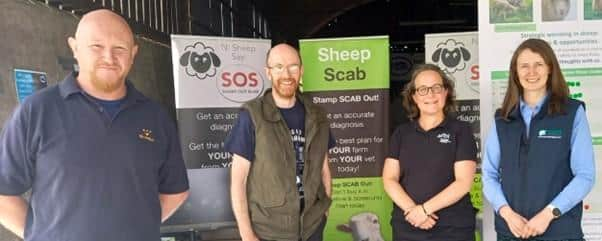Keen interest in NI Sheep Scab Project at NSA Day
and live on Freeview channel 276
The current BBSRC (Biotechnology and Biological Sciences Research Council) funded project is ending.
Participation exceeded initial targets, as the project engaged with 155 flock owners, of which approximately one-third were contacted due to a pilot study in one area of common grazing.
Advertisement
Advertisement
The flock owners who were concerned that scab might be present in their flocks were distributed across NI.


Participants were able to nominate a private vet, who was funded to undertake a farm visit in order to investigate (visually for clinical signs and using the sheep scab blood test) whether sheep scab was likely to be present in their flock and provide advice.
Where treatment was required, the project funded the supply of prescribed medicines up to a reasonable limit. However, the cost of application of dip or treatment with injectables was carried by the flock owner.
Testing of blood samples in the project successfully demonstrated the ability to detect infestation with sheep scab mites before symptoms appeared and promoted using the test as an important tool in differentiating scab from other diseases (eg infestation with lice). Given that resistance to the injectable macrocyclic lactones has been demonstrated throughout the UK, it is vital that sheep scab is diagnosed in an accurate and timely way, and appropriate and environmentally sustainable treatment is administered in a safe way.
Advertisement
Advertisement
A report on the project will be produced after completion of the data analysis. The aims have been to gather information to inform future research, to increase awareness of the importance of biosecurity and purchase of sheep from safe sources, to evaluate the costs and consequences of this notifiable disease, and to demonstrate the effectiveness of industry and community-led approaches in tackling sheep scab.